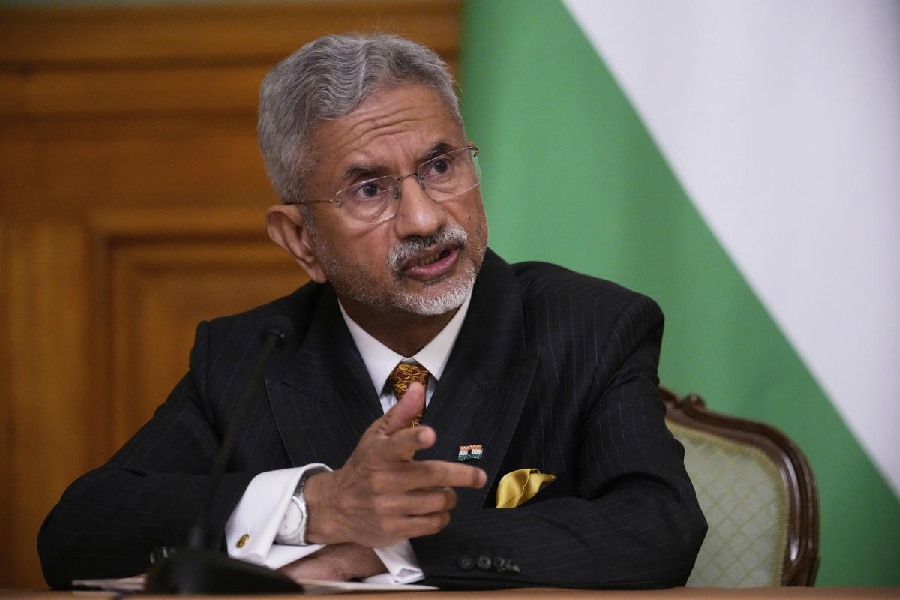External affairs minister S. Jaishankar on Tuesday articulated India's support for the Gaza peace plan with the hope that "it paves the way for a durable and lasting solution".
However, the 20-point plan drawn up by US President Donald Trump in consultation with other stakeholders does not envisage a clear pathway to Palestinian statehood.
In his opening remarks at the bilateral with his Israeli counterpart Gideon Sa’ar in the capital, Jaishankar also underscored the importance of the strategic partnership between the two countries. "India and Israel have a strategic partnership and particularly in our case, that term has a real meaning. We have stood together in testing times. And we have created a relationship with a high degree of trust and of reliability."
Jaishankar flagged issues being faced by Indian workers in Israel. Though earlier the Indian working community in Israel comprised mainly caregivers for the elderly, a new opportunity opened up for construction workers after the October 7, 2023, attack, when Tel Aviv cancelled work permits of Palestinians engaged in the sector. A number of Indian workers, recruited through labour camps, have moved to Israel over the past year.
"Indian workers are also present in Israel in growing numbers today as a result of our mobility understandings. They have some issues which need attention, and I hope that we can take that dimension of our ties forward," Jaishankar said.
The two sides also discussed connectivity projects. While Jaishankar did not refer to any one of them in particular, Sa’ar specifically mentioned I2U2 (the strategic partnership among India, Israel, the UAE and the US) and IMEC — the India-Middle East-Europe Economic Corridor. Both have been affected by the Hamas-Israel conflict.
The two sides also discussed terrorism. "It is essential that we work towards ensuring a global approach of zero-tolerance towards terrorism, in all its forms and manifestations," Jaishankar said.
Sa’ar condemned the Pahalgam attack before dedicating a sizable portion of his opening remarks to his country's fight against terrorism. "In the Middle East, Israel faces a unique phenomenon — 'terror states'. The radical terror states of Hamas in Gaza, Hezbollah in Lebanon and the Houthis in Yemen have established themselves over the past decades. Uprooting them is necessary for the security and stability of our region... Hamas must be disarmed. Gaza must be demilitarised. We won't compromise on it."











